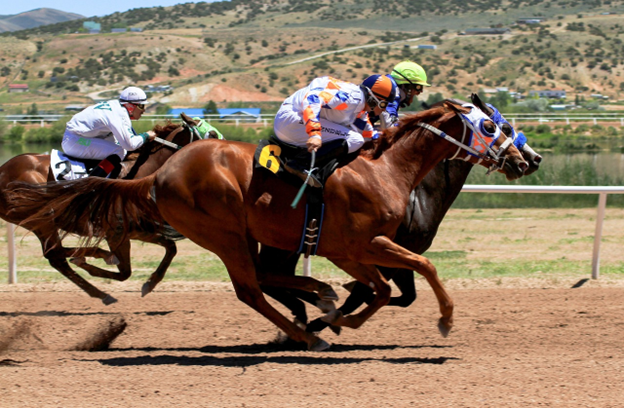The Kentucky Derby, affectionately known as “The Most Exciting Two Minutes In Sports,” stands as a prime event in horse racing, drawing spectators from around the globe to Louisville, Kentucky, each year. Its unique blend of tradition, pageantry, and thrilling competition captivates a wide audience, extending beyond mere spectators to include avid betting enthusiasts.
For those looking to immerse themselves in the betting activities of the Derby, a thorough understanding of odds, bets, and payouts is crucial. This knowledge not only enriches the event’s overall experience but also increases the likelihood of making informed and potentially lucrative betting decisions.
Making Sense of Odds in Betting
Odds in horse racing reflect the likelihood of each horse winning the race, as determined by the betting market. This is crucial for anyone looking to bet on Derby with FanDuel or any other reliable betting platform, where understanding the difference between fixed odds and pari-mutuel betting can greatly impact your experience.
Fixed odds are set when the bet is placed, offering a guaranteed payout if the bet wins, no matter how the betting pool might change later. On the other hand, pari-mutuel betting combines all bets of a specific type into a single pool, with payouts calculated based on the pool size and how many have backed the winning horse.
Knowing how to read these odds is key. They’re often shown as fractions or decimals, which tell you the potential return on your stake. For instance, odds of 5/1 suggest that for every $1 wagered, you could win $5 if your horse crosses the line first.
Types of Bets
Horse racing offers many bets, from straightforward options to more complex wagers. The basics include Win, Place, and Show bets. The Win bet means you’re betting on a horse to finish the race first. Place bets require your horse to finish first or second, and Show bets extend this to a third-place finish. These bets offer broader chances of winning but with smaller payouts.
Exotic bets, such as the Exacta, Trifecta, and Superfecta, involve picking the top two, three, or four finishers in exact order. These bets are harder to hit but offer significantly higher payouts due to their difficulty.
Straight bets, like Win, Place, and Show, are simpler and more accessible for beginners, providing a straightforward approach to betting with lower risks and rewards. On the other hand, exotic bets come with higher stakes and potential payouts, appealing to more experienced bettors seeking a challenge. While straight bets offer a solid starting point for newcomers, the allure of the big payouts from exotic bets can be enticing for those willing to take on the extra risk.
How to Place a Bet
To place a bet at the Kentucky Derby, you first need to decide whether you want the traditional experience of betting at the track or the convenience of online betting. If you’re at the track, find a betting window and clearly articulate the race number, your bet amount, the type of bet you’re making (such as Win, Place, or Show), and the number of horses you’re backing. Many credible bookmakers simplify the process for those opting for online betting. You’ll select the Kentucky Derby, choose your bet type and horse, and then specify your wager amount.
For first-time bettors, establishing and adhering to a budget beforehand is crucial. Starting with straightforward bets like Win, Place, or Show can help you get accustomed to the betting process without overwhelming yourself. While it’s essential to research the horses and their performance history, betting on the Derby should be about the thrill of the race and the tradition it represents. So, remember to keep the experience enjoyable and stress-free.
Calculating Payouts
In horse racing, payouts are primarily determined by the odds and the amount wagered. The odds represent the perceived chance of a horse winning and directly influence the potential payout. For example, if you bet on a horse with 5/1 odds with a $10 wager, your total potential payout would be $60 ($50 profit plus your original $10 bet) if the horse wins.
Different types of bets have varying payout structures. A straight Win bet is straightforward, but exotic bets like Exactas or Trifectas, where you predict the top two or three finishers in order, offer higher payouts due to increased difficulty. The impact of odds on payouts is significant. Longer odds mean higher potential payouts but come with greater risk, while shorter odds offer lower payouts but are considered safer bets.
Takeaway
Approaching Kentucky Derby betting with knowledge and a deliberately planned strategy enhances your chances of success and enriches the overall experience. Whether you’re a seasoned bettor or a first-timer, understanding the types of bets, how payouts are calculated, and the impact of odds is crucial. Armed with this information, you can confidently navigate the exciting world of horse racing betting, making informed decisions that add to the thrill of the Derby.



